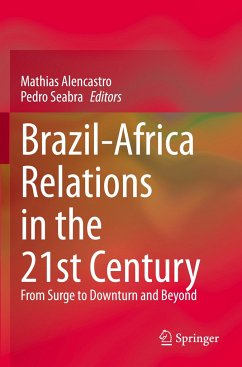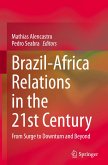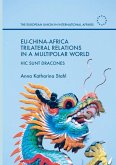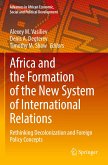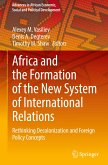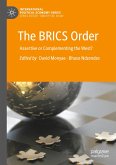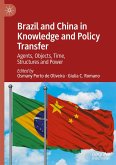This is one of the first books to analyse the full cycle of rise and fall of Brazil's foreign policy towards Africa in the beginning of the 21st century. During his government, former president Luiz Inácio Lula da Silva (2003-2010) made the drive towards Africa one of the cornerstones of Brazilian diplomacy and cooperation. In a bid to build strategic trading partnerships with African counterparts, Lula's government committed itself to an ambitious program centred on provisions in loans and credits as well as the exponential growth of its South-South cooperation. After Lula, however, this drive towards Africa started to decline and finally collapsed in face of political meltdown in Brazil and the proliferation of controversial judicial investigations that directly involved political leaders at the centre of most initiatives undertook in the 2000s.
The rise and fall of Brazil-Africa relations has provoked much discussion in policy-making, as well as scholarly research. This book seeks to provide valuable resources to the study of this process by presenting empirically based and updated analysis from different perspectives, such as:
The diplomatic tradition of Brazil-Africa relations
The role played by Brazilian big private companies in Africa
Brazilian health cooperation with African countries
The participation of civil society in Brazil-Africa relations
Brazil-Africa trade relations
Military cooperation between Brazil and Africa
Brazil's drive to Africa left a durable mark, whose implications are yet to be understood. What were its main successes and failures? And what does the dramatic change of events, with Brazil moving from a pivotal player to an almost invisible one in merely half a decade, tell us about South-South cooperation? These are some of the questions that Brazil-Africa Relations in the 21st Century - From Surge to Downturn and Beyond intends to answer in order to provide a useful resource for Political Science and International Relations scholars interested in the study of South-South relations, as well as for policy makers interested in understanding the changing dynamics of International Relations in the wake of the 21st century.
The rise and fall of Brazil-Africa relations has provoked much discussion in policy-making, as well as scholarly research. This book seeks to provide valuable resources to the study of this process by presenting empirically based and updated analysis from different perspectives, such as:
The diplomatic tradition of Brazil-Africa relations
The role played by Brazilian big private companies in Africa
Brazilian health cooperation with African countries
The participation of civil society in Brazil-Africa relations
Brazil-Africa trade relations
Military cooperation between Brazil and Africa
Brazil's drive to Africa left a durable mark, whose implications are yet to be understood. What were its main successes and failures? And what does the dramatic change of events, with Brazil moving from a pivotal player to an almost invisible one in merely half a decade, tell us about South-South cooperation? These are some of the questions that Brazil-Africa Relations in the 21st Century - From Surge to Downturn and Beyond intends to answer in order to provide a useful resource for Political Science and International Relations scholars interested in the study of South-South relations, as well as for policy makers interested in understanding the changing dynamics of International Relations in the wake of the 21st century.

